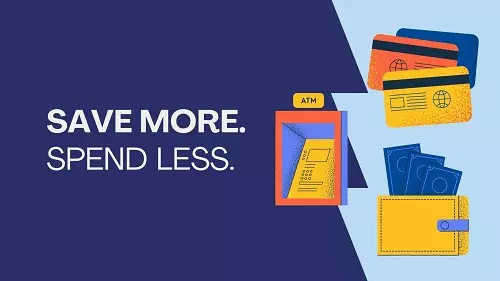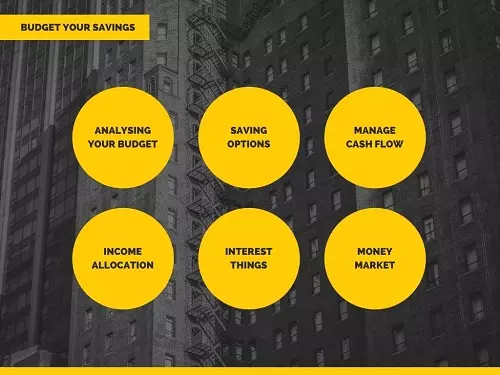This article is for you if you’re looking for a new career and want to become a financial advisor! Here we will cover 30 common financial advisor interview questions and answers to help you get your dream job.
As financial advisors, you are responsible for helping clients understand their finances and decide how they spend their money. You are also there to offer advice regarding large purchases like buying a house or car. So if you want to be in control of your future by making more money, these tips will show you how!
Table of Contents
Financial Advisor Interview Questions
What does a typical day at work look like?
A typical day in a financial advisor’s life varies from person to another depending on their work schedule, but there are some everyday tasks that most face.
- Meet with clients
- Handle administrative responsibilities such as paperwork and bookkeeping.
- Review financial statements and investments.
- Research new investment opportunities.
- Attend workshops and educational seminars on personal finance, investments, etc.
Why do you want to work as a financial advisor?
Example Answer: I want to work in this industry because I am passionate about helping people achieve their financial goals. I can encourage and inspire my clients, that is why they come back seeking my advice when making important decisions regarding their finances.
Experience the fulfilling feeling when seeing how happy you can make someone by improving their financial situation.
Other Resources
List of Common Interview Questions and Sample Answers
Sample Answers for Why Financial Advisor
What types of investments do you specialize in?
Example: I have a lot of experience with real estate and stock market investments and individual bonds, mutual funds, etc., but my specialty is 401ks because that’s where most people invest their money for retirement.
What are your strengths as a financial advisor?
Example Answer: My strengths as a financial advisor are my ability to stay calm under pressure, my attention to detail, and my passion for helping people reach their financial goals.
I also have a lot of experience in the industry, so I can offer valuable advice to clients who might be unsure about what they should do with their money.
How much time do you spend on research each month?
Example Answer: I spend about 20-30 hours researching new investment opportunities per month. The financial industry is constantly evolving, so it’s essential to stay up to date on the latest news and trends to provide the best advice possible to my clients.
20+ Time Management Interview Questions to Ask
What do you think are the biggest financial concerns of people your age?
Example Answer: I think the biggest financial concerns for people my age are saving for retirement, paying off student loans, and managing day-to-day expenses. Many young adults are also starting their businesses, so they need to be aware of the financial risks.
How do you keep up with new financial products?
Example Answer: I read a lot of financial magazines and newspapers, and I also subscribe to several investment newsletters, including Youtube. I also attend workshops and educational seminars on personal finance, investments, etc., to stay up-to-date with the latest news and trends in the industry.
What do you think is the biggest mistake people make regarding their finances?
Example Answer: One of the people’s biggest mistakes regarding their finances is not having a budget. Without a budget, it’s tough to track your expenses and stay on top of your financial goals.
What tips can you give someone trying to get their finances in order?
Example Answer: Here are a few tips to help get your finances in order:
-Start by creating a budget and sticking to it.
-Save for emergencies by setting aside money each month into a savings account.
-Invest in yourself by taking courses and workshops on personal finance.
-Make a plan for retirement and start saving as early as possible.
What is your ideal work environment?
Example Answer: I like to be part of an organization that encourages me to grow and learn new skills daily. My ideal work environment would include professional development opportunities such as workshops and seminars.
I also enjoy working with clients who are passionate about achieving their financial goals because it makes my job more rewarding.
Are you familiar with the tax laws?
Example Answer: Yes, I am very familiar with the tax laws. When it comes to investing and managing money, taxes are one of the most important things for people to understand to make better decisions about their investments.
What financial planning software tools would you use to ease the job?
Example Answer: I use various software tools to ease the job, including financial planning software, investment tracking software, and accounting software.
Examples of financial planning software are
- MoneyGuidePro.
- Microsoft Excel.
- eMoney.
- Quicken.
- Right Capital.
- Advicent/NaviPlan.
What is your customer service philosophy?
Example Answer: My customer service philosophy centers around the idea that my clients are smart, savvy individuals who know what they want out of life.
I only provide advice when requested because good financial planning requires an open dialogue between my client and me to be successful.
Top 35+ Customer Service Interview Questions and Answers
What is your investment philosophy?
My investment philosophy is centered around the idea that diversification is key. I believe that investors should spread their money out among different types of investments to minimize the risk of losing any one particular investment.
If I gave you one million dollars, how would you invest it?
Example Answer: I would invest in a diversified mix of stocks, bonds, and mutual funds. By spreading my money out among different types of investments, I can minimize the risk of losing any one particular investment.
Can you name three things that a financial advisor should know?
Example Answer: Yes. A financial advisor should know about taxes, investments, and financial planning software tools to provide the best advice possible to their clients.
What is the most rewarding part of the job for you?
Example Answer: The most rewarding part of the job for me is when I can help my clients achieve their financial goals. Seeing my clients reach their targets is very satisfying, whether helping them save for retirement or pay off their debts.
What are some of the benefits of working as a financial advisor?
Example Answer: Here are a few benefits of working as a financial advisor:
-Work from home or set your hours.
-It’s a flexible career that will continue to be in demand as the world becomes more digital.
-Make an immediate impact on the lives of others by helping them with their finances.
What do you know about our company?
Tip: Do your research before the interview!
What makes you the best candidate for this job?
Example Answer: I am passionate about helping people achieve their financial goals. My experience as a financial planner has given me valuable knowledge that will help me succeed in this role.
Furthermore, I’m comfortable using technology to aid with coordination on new accounts and investment performance reports.
Client Related Financial Advisor Interview Questions
Do you prefer calling clients or meeting them in person?
Tip: There is no right or wrong answer to this question, but you should try to emphasize the benefits of meeting clients in person if that is your preference.
For example, you could say that face-to-face meetings allow for a more personal connection and provide an opportunity for greater dialogue between advisor and client.
Example Answer: I prefer meeting clients in person whenever possible. It allows me to understand their needs better and builds a stronger relationship with them. However, I am also comfortable calling clients if they cannot meet in person.
How would you keep in touch with a new client without overdoing it?
Tip: Try to strike a balance between contacting clients frequently enough to feel supported but not so often that they feel overwhelmed or annoyed.
Example Answer: I would typically contact new clients once a week initially and then adjust my frequency depending on their needs. I always respect my client’s time and only reach out when necessary.
How do you feel about working with clients who have a limited understanding of financial concepts?
Tip: Some financial advisors are uncomfortable working with clients who do not have a strong grasp of financial concepts. However, if you want to work as a financial advisor, you will most likely encounter this situation at some point or another.
You might consider sharing that it can be challenging to deal with clients whose abilities and knowledge differ from your own, but the key is finding ways to work together as a team.
Example Answer: It can be difficult at times, but I enjoy working with clients who are eager to learn and want to improve their financial situation.
I try to take the time to explain concepts so that they can understand, and I’m always available to answer any questions they may have.
What is the best way to approach a new client?
Tip: Some advisors prefer to send a detailed proposal outlining their services and fees before meeting with the client. Others take a more personal approach and meet with the client first to understand their needs.
Example Answer: I usually like to meet with new clients to understand their needs better. After we meet, I’ll send a proposal that explains my services and fees.
What is your process for working with a client?
Tip: Financial advisors have different processes depending on their style of work and the type of clients they serve. For example, financial advisors regularly prefer to meet new clients after investing their money, while others only offer advice and check in periodically.
Example Answer: I like to meet with clients every few months after they’ve invested their money and review their goals so we can make any necessary adjustments.
This allows me to get a better sense of how spending habits vary over time, and it will enable me to ensure that financial goals remain on track for long-term success.
How do you build relationships with your clients?
Tip: Highlight the importance of building relationships based on trust and dependability.
Example Answer: I think establishing strong client relationships begins with being reliable and accountable. With every new account or investment goal we work towards together, my clients can count on me to deliver my best work.
How do you resolve conflicts with clients?
Tip: Highlight the importance of being empathetic and understanding when working out disagreements or conflicts.
Example Answer: I understand that people sometimes experience conflict in their lives outside of their relationship with their financial advisor. I try to approach these disagreements with empathy and understanding while also ensuring that my clients always feel respected.
How do you work with clients who ask for more than they need or can afford?
Tip: Stay honest and transparent with clients and set realistic expectations.
Example Answer: I believe it’s important always to be honest and upfront when working with a client, which means that sometimes we need to discuss if they’re asking for more than what they can afford or need in terms of services.
At this point, I will try my best to work with them to find a solution that meets their needs without going over budget.
What is your process for maintaining client loyalty?
Tip: Answer should be based on providing quality services and being available when needed.
Example Answer: I think that maintaining client loyalty starts with providing high-quality services and being available when they need me. I also like to stay in touch with them regularly, so they know that I’m always available if they need me.
What is your process for maintaining client confidentiality?
Tip: Answers should revolve around confidentiality and protecting client information.
Example Answer: I think maintaining client confidentiality is important in building trust with clients. I take great care not to share any personal or financial details about my clients without their permission, and I only discuss the details of their accounts with them.
What steps do you follow to maintain the confidentiality of client information?
Example Answer: I always try to maintain confidentiality when working with clients. There are two main things that I do in this regard.
- All the employees sign non-disclosure agreements that outline how we’re expected to protect client information at every stage during the process.
- Every time a new employee is hired or someone leaves the firm. We make sure to sit down with them and go over these policies again.

What would you do if a client wanted to make a risky investment?
Example Answer: I would do my best to try and help them understand why making a risky investment is not in their best interest. If they still want to go through with it after that, I would try to find a less risky alternative.
When converting a client from one financial product to another, what is your best strategy?
Tip: Formulate your answer to highlight the importance of working together and understanding client needs.
Example Answer: I think that it’s important always to be honest and upfront when working with a client, which means that sometimes we need to discuss if they’re asking for more than what they can afford or need in terms of services.
I am always available to help them find a solution that meets their needs without going over budget.
How can a financial advisor overcome the challenge of convincing clients to invest in their financial future?
Example Answer: I think that the best way to overcome this challenge is by educating clients about the importance of investing in their financial future and building trust with them over time.
They will be more likely to listen to your advice and invest in what you recommend.
Why do you think some people choose to use a financial advisor instead of doing it themselves?
Tip: Formulate your answer regards to experience and knowledge of a financial advisor.
Example Answer: I think that some people choose to use a financial advisor because they want someone who has experience and knowledge when it comes to investing and managing money.
They know that we can help them reach their financial goals more efficiently and effectively than they would be able to do by themselves.
How would you like to be remembered by your clients?
Example Answer: I think it’s important to be remembered as someone consistently available to help them reach their financial goals in a way that makes sense for their life situation. By doing this, they will know that we can be trusted to help them make the right decisions for their future.
Frequently Asked Questions
What are some of the responsibilities of a financial advisor?
The responsibilities of a financial advisor include the following:
- Help clients make financial decisions based on their needs and objectives.
- Provide investment advice.
- Explain tax implications to clients.
- Create a clear financial plan for them.
- Review financial statements with clients.
- Conduct financial audits.
- Work closely with other professionals such as accountants and legal advisors.
- Answering client queries about their finances.
What are the skills required to be a successful advisor?
The skills required to be a successful financial advisor include
- Understanding to apply numerical concepts.
- Understanding of complex financial concepts.
- Strong written and verbal communication skills.
- The ability to listen attentively motivates clients, builds rapport.
- Provide excellent customer service.
- Analytical thinking to access risk appropriately when advising on investments/plans for the client.
- Interpersonal skills since you will be working closely with your clients daily.
- Provide financial advice and guidance.
What kind of personality traits do I need to be a successful advisor?
Some key personality traits required to become a successful financial advisor include working well with people from backgrounds and ages. Good time management skills since your clients will vary in their needs and expectations, requiring different attention levels.
The ability to work independently and in a team since you will have colleagues who are your support system when training and motivating you for the job.
What is the average salary I can expect with this career?
As a financial advisor, an entry-level professional can expect around $60K per year, while those with more experience earn upwards of $120K.
What are some common career paths for advisors?
There are a few different career paths that you can take as a financial advisor. You could become an independent consultant, work for a bank or other financial institution, or become a certified public accountant (CPA) and offer financial advice on the side. Each of these paths has different benefits and drawbacks, so it’s important to weigh your options before deciding.
What is the job outlook for advisors?
The job outlook for financial advisors is positive, with employment growth projected to be around 5% from 2020-2030. It is much slower than the average for all other occupations. This growth is primarily due to an aging population that will require more financial advice in the future, as per the U.S. Bureau of Labor Statistics handbook.
Conclusion
If you’re interested in becoming a financial advisor, now is the perfect time to start. This article has provided 30 of the most important interview questions for financial advisors.
We hope these tips will help you land your dream job soon! If you need more information, let us know through comments.


